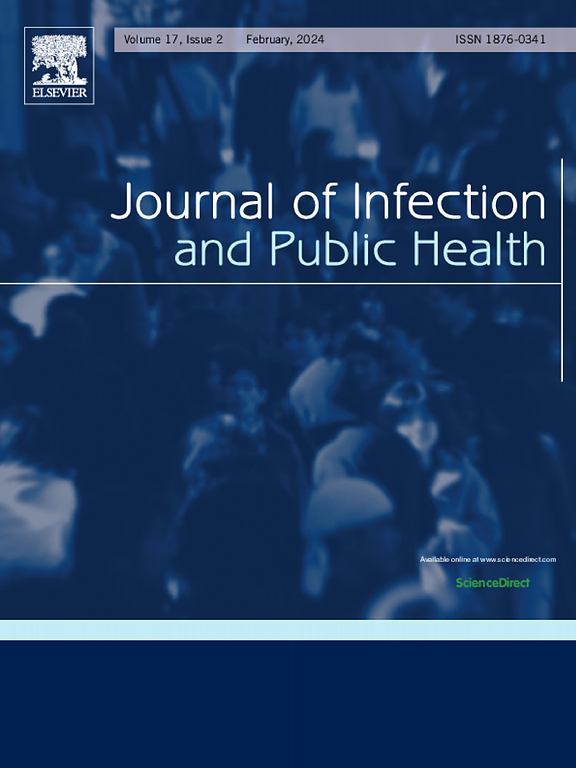Knowledge, experience, and willingness to vaccinate against intestinal parasitic infections: A multi-country study in Asia
IF 4.7
3区 医学
Q1 INFECTIOUS DISEASES
引用次数: 0
Abstract
Background
Intestinal parasitic infections (IPIs) remain a significant public health challenge and a neglected disease in many parts of Asia, contributing to morbidity and mortality, particularly in vulnerable populations. Despite the potential of vaccines to reduce the burden of these neglected IPIs, little is known about the public's willingness to be vaccinated against these infections.
Objective
This study aimed to assess the general population's knowledge, symptom experiences, and willingness to vaccinate against IPIs across six countries: Malaysia, Vietnam, India, Pakistan, and China.
Materials and methods
A cross-sectional online survey was conducted between June and December 2023 across six countries in Asia region. Participants completed a self-administered online questionnaire that assessed demographic information, knowledge of IPIs, symptom experiences, and willingness to receive a vaccine against IPIs for themselves and their children. Univariate and multivariable logistic analyses were performed to determine the factors related to vaccination the willingness.
Results
A total of 5470 complete responses were received. The highest proportion of individuals willing to receive the vaccine was in India (86.1 %), followed by China (80.8 %) and Pakistan (75 %), with Vietnam having the lowest proportion at 50.1 %. For child vaccination, China had the highest willingness (83.3 %). A higher knowledge score was significantly associated with increased willingness to be vaccinated [adjusted odds ratio (aOR)= 1.91, 95 % CI: 1.70–2.15]. Additionally, a higher symptom experience score was significantly associated with greater vaccination willingness (aOR=1.71, 95 % CI: 1.50–1.94). Females residing in urban-suburban areas showed significantly higher vaccination intentions. The willingness to vaccinate children against IPIs closely mirrored the trends observed in self-vaccination willingness, with knowledge being the only factor significantly associated with the willingness to vaccinate children.
Conclusion
The study underscores the importance of enhancing educational efforts regarding neglected IPIs and vaccination, particularly when vaccines are available and recommended.
求助全文
约1分钟内获得全文
求助全文
来源期刊

Journal of Infection and Public Health
PUBLIC, ENVIRONMENTAL & OCCUPATIONAL HEALTH -INFECTIOUS DISEASES
CiteScore
13.10
自引率
1.50%
发文量
203
审稿时长
96 days
期刊介绍:
The Journal of Infection and Public Health, first official journal of the Saudi Arabian Ministry of National Guard Health Affairs, King Saud Bin Abdulaziz University for Health Sciences and the Saudi Association for Public Health, aims to be the foremost scientific, peer-reviewed journal encompassing infection prevention and control, microbiology, infectious diseases, public health and the application of healthcare epidemiology to the evaluation of health outcomes. The point of view of the journal is that infection and public health are closely intertwined and that advances in one area will have positive consequences on the other.
The journal will be useful to all health professionals who are partners in the management of patients with communicable diseases, keeping them up to date. The journal is proud to have an international and diverse editorial board that will assist and facilitate the publication of articles that reflect a global view on infection control and public health, as well as emphasizing our focus on supporting the needs of public health practitioners.
It is our aim to improve healthcare by reducing risk of infection and related adverse outcomes by critical review, selection, and dissemination of new and relevant information in the field of infection control, public health and infectious diseases in all healthcare settings and the community.
 求助内容:
求助内容: 应助结果提醒方式:
应助结果提醒方式:


